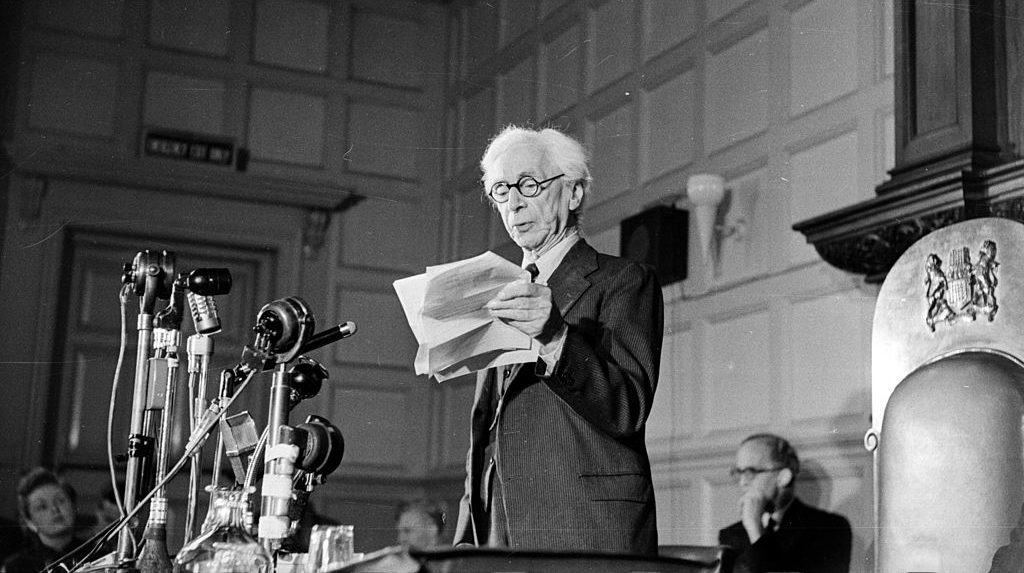In 1950, Bertrand Russell published an essay entitled The Future of Mankind, which opens with a stunning prediction. It’s tweeted here by Stefan Schubert — a researcher at the University of Oxford:
Bertrand Russell's prediction was quite wrong. pic.twitter.com/5TBfmgKqGD
— Stefan Schubert (@StefanFSchubert) February 1, 2021
21 years into the 21st century we have yet to nuke ourselves into extinction or back to the Stone Age. We haven’t formed a world government either — which was the third and final possibility.
But why was Russell wrong? What was it that was so “unforeseeable”? A few suggestions:
1. Providence. Russell didn’t believe in God, and so could not have considered the possibility that our creator isn’t done with us.
2. The enduring power of conservatism. Russell was a progressive thinker in a progressive century. But despite the blandishments of modernity, some of the old ways are still quite popular — things like family, nation and not living in a radioactive wasteland.
3. The unenduring power of communism. In 1950, the Cold War was in full swing. But by the end of the 20th Century, the USSR was gone and as for China…
4. Nuking export markets is bad for business. Long live global capitalism!
5. Mutually Assured Destruction. M.A.D. is mad — a moral obscenity. And yet, compared to the sort of war that one might actually win, it’s not terribly enticing.
6. Nukes are a faff. Nuclear weapons have proliferated, but not to the extent feared in 1950. To join M.A.D. Club you don’t just need one nuke, but a whole arsenal — plus the launch systems. For most countries, it just isn’t worth the bother.
7. One world government is silly. Have you seen the European Union lately? Now imagine Ursula von der Leyen trying to run a planet. In any case, did Russell never think that one bunch of people having all the weapons might be a problem, not a solution?
8. Intellectuals aren’t as clever as they think they are. If we really wanted to reduce the world to rubble, the best way would be to put some academics in charge. Lovely people, I’m sure — and quite bright in their own way. Nevertheless we’d be eating our pets within three months.
9. People tend to muddle through. In 1950, was it really “unforeseeable” that they might?
10. Stanislav Petrov. The most disturbing explanation for why Russell was wrong is that he was almost right. Despite the absence of a world government, we never had a nuclear war — but there were some close calls. Most notoriously, there was the 1983 incident in which a Soviet early warning system showed that the Americans had launched an attack. Luckily for us, a duty officer called Stanislav Petrov realised it was a false alarm.
We’ll never know what would have happened if he hadn’t — but, thankfully, there are some people in this world who know when to use their common sense.











Join the discussion
Join like minded readers that support our journalism by becoming a paid subscriber
To join the discussion in the comments, become a paid subscriber.
Join like minded readers that support our journalism, read unlimited articles and enjoy other subscriber-only benefits.
Subscribe